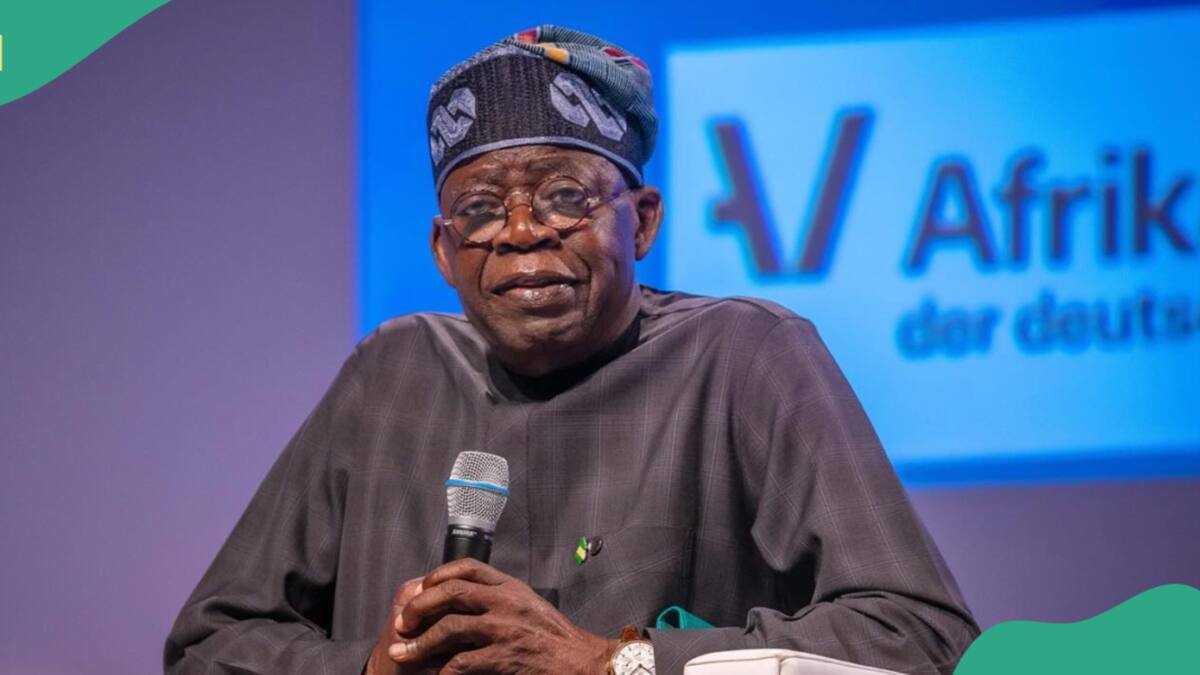Data from the Central Bank of Nigeria shows that the Nigerian government serviced debt with N8.94 trillion in the first nine months of 2024The amount represents a 56.8 increase from the N5.69 trillion spent in the same time last yearExperts say the country’s debt servicing costs show the growing burden of Nigeria’s debt obligations amid an ever-increasing fiscal shortfall
Henzodaily.ng’s Pascal Oparada has reported on tech, energy, stocks, investment and the economy for over a decade.
The Nigerian government spent N8.94 trillion on debt servicing in the first nine months of 2024, accounting for 47% of total expenditure.
The amount is a 56.8% increase from the N5.69 trillion spent in the same period in 2023.
President Bola Tinubu’s government spends N8,94 trillion on debt servicing in nine months.
Credit: State House
Source: Facebook
Nigeria’s earnings at risk due to debt service
The figure is based on data the Central Bank of Nigeria released from its quarterly bulletin.
The country’s debt servicing costs show the growing burden of Nigeria’s debt obligations amid an ever-increasing fiscal shortfall.

Read also
FG spent 47% of 2024 budget expenditure on debt servicing in 9 months
Nigeria’s debt-to-revenue ratio increased significantly, with debt servicing gulping 147% of retained revenue in the first nine months of 2024.
This is relative to 2023 when the debt-to-revenue ratio stood at 132%.
Breakdown of debt servicing
The government retained N6.08 trillion in revenue in the period, while debt servicing costs overshadowed the amount. The trend shows an increasing dependence on borrowing and existing debts.
According to reports, recurrent expenditure increased to N15.11 trillion in the first three quarters of 2024, representing 45.6% from the N10.38 trillion in 2023.
A breakdown shows that personnel costs rose by 20% to N3.59 trillion from N2.99 trillion.
Overhead cost increased by 51.4% to N892.85 trillion from N589.63 trillion.
Transfers increased by 83.8% to N1.31 trillion from N711.36 billion in 2024.
Also, capital expenditure rose by 20.8% to N3.86 trillion, relative to N3.19 trillion in 2023.
However, the growth in capital spending was modest compared to recurrent expenditures, which shows how rising debt obligations continue to overshadow critical infrastructure investment.

Read also
Nigeria’s debt profile to hit N187 trillion as World Bank disburses $2.5 billion
Experts express worry over huge debt servicing
The fiscal deficit grew by 39.3%, from N9.25 trillion in the first nine months of 2023 to N12.89 trillion in 2024.
The deficit shows the continued gap between government revenue and expenditure caused by growing debt service costs.
Experts say the growing debt servicing burden, fiscal deficit, and dwindling revenue threaten Nigeria’s fiscal sustainability.
Nigeria’s total debt profile rises to N134 trillion
Henzodaily.ng earlier reported that Nigeria’s total debt profile spiked by N12.6 trillion in three months to N134.3 trillion towards the end of the second quarter of 2024.
The increase is 10.35% from the N121.7 trillion recorded in the first quarter of 2024.
An official document presented at a session on the sidelines of the World Bank/IMF annual meetings in Washington, DC, shows that the spike was due to the naira devaluation.
PAY ATTENTION: Сheck out news that is picked exactly for YOU ➡️ find the “Recommended for you” block on the home page and enjoy!
Source: Henzodaily.ng
